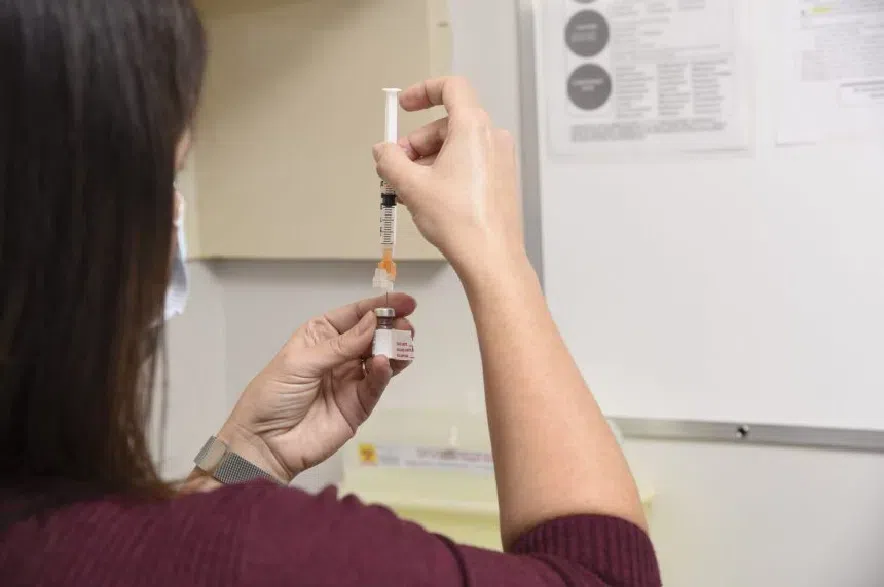All babies born in Saskatchewan this winter will be eligible for immunization against the respiratory syncytial virus (RSV).
The Saskatchewan Ministry of Health said RSV is a common virus that infects the lungs, sometimes leading to pneumonia or bronchiolitis. RSV spreads very quickly, the ministry noted, especially during colder months. RSV-related bronchiolitis is one of the most common causes of hospitalizations for infants, and the virus presents an especially high risk to babies born prematurely or those with chronic heart or lung disease.
Read more:
- Sask. keeps COVID-19 vaccines free this fall, unlike Alberta and Quebec
- Sask. government expands RSV immunization for newborns
- Health ministry issues overdose risk for Saskatoon and area
While the program was previously only available to high-risk newborns, the ministry said all children born between Oct. 1 and March 31 will be eligible to receive the immunization.
“We are pleased to provide more Saskatchewan families with access to this preventative RSV treatment option this winter when we see higher rates of respiratory infections in newborns,” Health Minister Jeremy Cockrill said in a statement.
“Broadening immunity for babies who are more susceptible will help prevent severe outcomes and added capacity pressures for our health care teams.”
The RSV immunization program is a single-dose injection of antibodies, which the ministry said is highly effective at reducing hospitalization rates. The injection is currently only offered in hospitals at the time of birth, and is designed to protect the newborns during their first RSV season, which occurs in the late fall and winter. Children who are at a higher risk will continue to be covered under the program for an additional season, the ministry explained.
“With respiratory illness season posing heightened risks to our smallest and often most vulnerable patients, the availability of the RSV immunization for infants presents a safe and timely opportunity,” said Dr. Terry Klassen, the Saskatchewan Health Authority’s provincial department head in pediatrics, said in a statement.
“Unlike traditional vaccines, the RSV immunization provides protection by introducing antibodies to combat the virus if a child were to come into contact with it, offering significant potential to reduce hospitalizations and severe complications in newborns during their first RSV season.”
Parents and families were encouraged to discuss RSV immunization with their primary health-care provider and prenatal care team.











